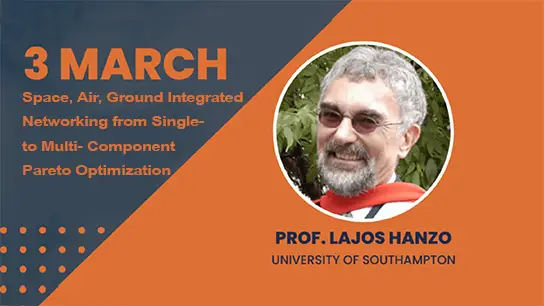-
Members: FreeCIS
IEEE Members: Free
Non-members: FreeLength: 01:02:26
08 Jul 2018
Colin Blakemore Keynote Talk (IJCNN) at WCCI 2018
Abstract: "Development of the nervous system depends on adaptive mechanisms that guide and fine-tune neuronal connectivity. Flexibility is essential for establishing topographic mapping between sense organs and the brain. After the formation of connections, many synapses are able to regulate their strength as a result of activity passing through them. Such plasticity helps individual animals to match their perceptual, cognitive and motor skills to the nature of the world around them. The activity-dependent modification of sensory areas of the cerebral cortex during postnatal sensitive periods is the best-known example of such adaptive plasticity. There has been progress in defining the molecular mechanisms and functional value of developmental plasticity. The adaptability that underpins normal development might have played an important role in the evolution of the brain, providing a mechanism by which mutational changes in parts of a neural pathway (for instance, an increase in the size of the cerebral cortex or the appearance of additional types of peripheral processing), can be functionally accommodated.
Many parts of the brain retain forms of plasticity throughout life. The mapping within sensory and motor areas of the cerebral cortex can change rapidly in response to loss or change of input, local damage and learning. And the cortex can re-organize itself on a massive scale after stroke or after the onset of blindness. Synaptic plasticity, although fundamentally genetically determined, has enabled mammals, especially human beings, to escape from the informational limits in the blueprint of their genes and propelled them into a different mode of evolution, dependent on the cultural transmission of information. A better understanding of the mechanisms and value of adult brain plasticity might reveal features that could be incorporated into the architecture of computational learning.
"
Abstract: "Development of the nervous system depends on adaptive mechanisms that guide and fine-tune neuronal connectivity. Flexibility is essential for establishing topographic mapping between sense organs and the brain. After the formation of connections, many synapses are able to regulate their strength as a result of activity passing through them. Such plasticity helps individual animals to match their perceptual, cognitive and motor skills to the nature of the world around them. The activity-dependent modification of sensory areas of the cerebral cortex during postnatal sensitive periods is the best-known example of such adaptive plasticity. There has been progress in defining the molecular mechanisms and functional value of developmental plasticity. The adaptability that underpins normal development might have played an important role in the evolution of the brain, providing a mechanism by which mutational changes in parts of a neural pathway (for instance, an increase in the size of the cerebral cortex or the appearance of additional types of peripheral processing), can be functionally accommodated.
Many parts of the brain retain forms of plasticity throughout life. The mapping within sensory and motor areas of the cerebral cortex can change rapidly in response to loss or change of input, local damage and learning. And the cortex can re-organize itself on a massive scale after stroke or after the onset of blindness. Synaptic plasticity, although fundamentally genetically determined, has enabled mammals, especially human beings, to escape from the informational limits in the blueprint of their genes and propelled them into a different mode of evolution, dependent on the cultural transmission of information. A better understanding of the mechanisms and value of adult brain plasticity might reveal features that could be incorporated into the architecture of computational learning.
"


